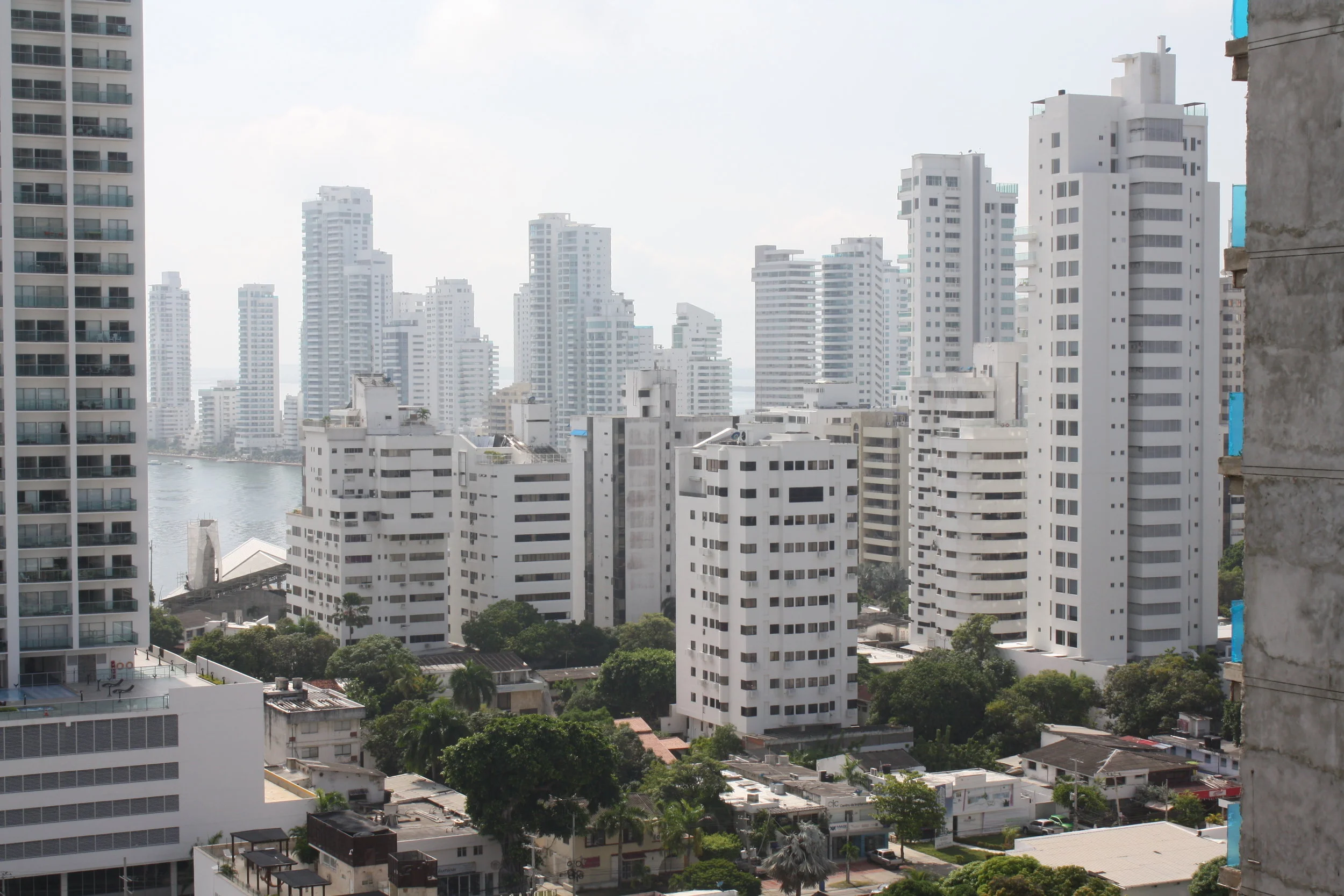"Near Heaven" by J L Higgs
Near Heaven
Marcus closed the cooler’s lid. Ignoring the chill in the morning air, he marveled at the spectrum of colors evolving in the sky as dawn broke. There were many places where people gathered to watch the sunset each day, but dawn always left him speechless. Below, in the harbor, the city’s skyline shimmered, out of focus. As the new day’s light continued strengthening, the image on the water’s surface sharpened until it mirrored the skyline.
“You’re here early,” said Raymond, interrupting Marcus’s reverie.
Nodding, Marcus walked over to his tools, picked them up and placed them in slots in his utility belt. Then he filled their buckets with water and set them on the work platform while Raymond outfitted his belt.
They inspected the anchoring setup, the wire rope attached to it, and the mechanism that locked the platform to the rope. Satisfied the apparatus was safe and well-secured, they dipped under the platform’s handrails, stepped aboard, and lowered themselves over the edge of the building.
Marcus dipped his chamois in his bucket, then rubbed it against the glass. Next, he unholstered his scrim and loosened the dirt. That done, he scrubbed the glass with clean water, sluicing away the dirt and grime with his squeegee. He deposited the squeegee back in its belt slot and allowed himself a moment to admire his work. Then he moved to the next window.
Hoping for a better life, leaving behind his parents, younger siblings, and everything he’d known in Guatemala had been the scariest thing Marcus had ever done. Initially, obtaining a job had been difficult. But despite the danger, he loved washing windows in high-rise, multi-story buildings. There was a certain serenity high in the air above the street rarely experienced down on the ground. He’d always been meticulous and seeing the world from a bird’s-eye view provided him with a different perspective on life.
“Don’t be daydreaming over there,” called out Raymond. He laughed.
“I’m not,” replied Marcus.
Though not daydreaming, Marcus’s mind had been wandering. He’d witnessed all manner of things doing this job. Rambunctious dogs left home alone, barking incessantly. Also, the occasional indifferent cat, lounging luxuriously on a sofa in the sun. What few children he encountered were always on a building’s lower floors, surrounded by furnishings that looked homey and lived-in. That contrasted starkly with the inhospitable, blemish-free, showroom décor found on the uppermost floors. Their occupants, perched high and with most of the world below them, demanded an unsullied and unobstructed view of the city and harbor, though rarely took the time to appreciate the beauty surrounding them.
Even though Marcus prided himself on being discreet, the job afforded him intimate, uncensored glimpses into people’s personal lives. Sometimes he saw women or men crying, couples arguing, prospective buyers viewing apartments, or old people struggling to walk from one point to another. Others’ distress always saddened him and made him wish he could offer more than just clean windows and the clear view they provided.
One day, when he’d been cleaning windows, a woman suddenly appeared wrapped in a towel, her back to him. Her cacao-colored skin evoked thoughts of home, and he felt a longing for Guatemala’s lush green tropical valleys and mountains rising into the clouds.
She turned in his direction, startling them both, and Marcus lost his footing. As he lunged for the wire, she dashed to the window, reaching out as if to save him. When he regained his balance, they were standing eye-to-eye with only the crystal-clear glass separating them. She asked if he was OK, and he nodded yes.
She smiled, turned, and walked back to where the towel lay. As she picked it up off the carpet and walked away, his thoughts of home overwhelmed him. Seeing her handprint on the glass, he placed his hand against it.
Marcus positioned himself in front of the next window, paused, inhaled, and completely filled his lungs. The air’s clean fresh taste and smell were bewitching and incongruous with the dirt and grime he removed from the glass.
Glancing at the light blue sky, he called out to Raymond, “Do you think there’s a God?”
“Who knows,” responded Raymond with a shrug. “What are you now? Some philosopher window washer?”
Marcus resumed cleaning. Each time before sluicing, he checked below, making sure there was no one who could be inadvertently victimized by the filth he was expunging. The two men worked steadily, descending floor-by-floor until daylight began to fade. They then agreed to halt work for that day.
Working in tandem, they pulled the wire ropes, raising the platform until it reached the building’s roofline. There, they climbed off. On the roof, Raymond immediately began completing the maintenance of his tools while Marcus took his time.
“Would you mind finishing up?” asked Raymond. “I need to run.”
“No problem,” replied Marcus, continuing to orderly arrange his tools.
Alone on the rooftop, his back to the setting sun, Marcus emptied their buckets and stored their equipment. Opening the cooler, he pulled out a woven blanket, stretched out on the rooftop, and settled in. Tomorrow would be payday, and he’d be able to send what little he’d saved to his family back home. Envisioning dawn breaking over mountains and valleys, he closed his eyes. In the harbor, specks of light floated on the water’s surface. Their numbers increased throughout the night, until they resembled a field of stars cradling the city skyline.
J L Higgs
J L Higgs's short stories typically focus on life from the perspective of a black American. He has been published in over 30 magazines, including Indiana Voice Journal, The Writing Disorder, Contrary Magazine, Literally Stories, The Remembered Arts Journal, Rigorous, and was nominated for a Pushcart Prize. He resides outside of Boston.
Headshot: C. A. Maynard
Photo Credit: Staff


